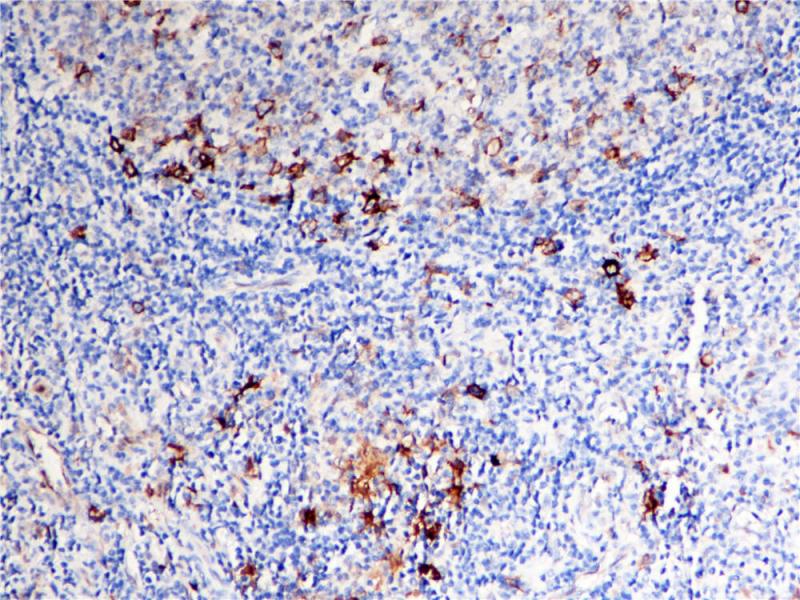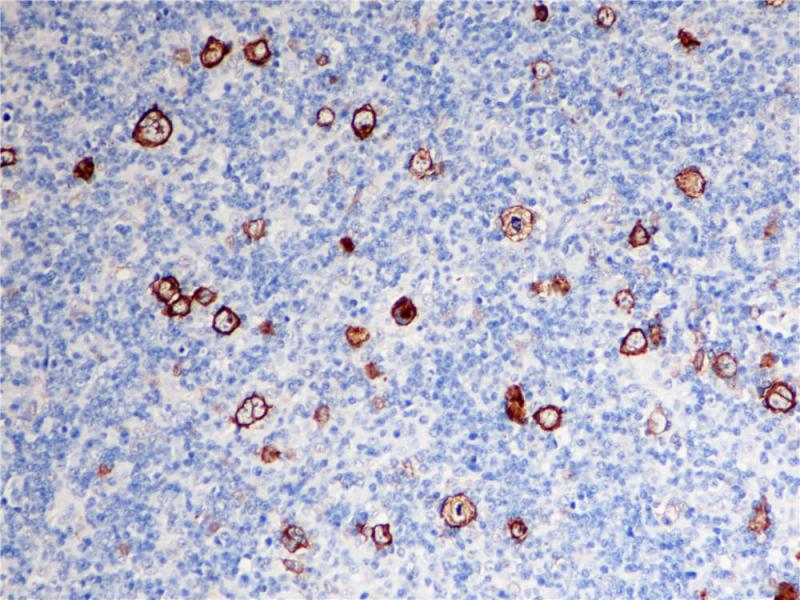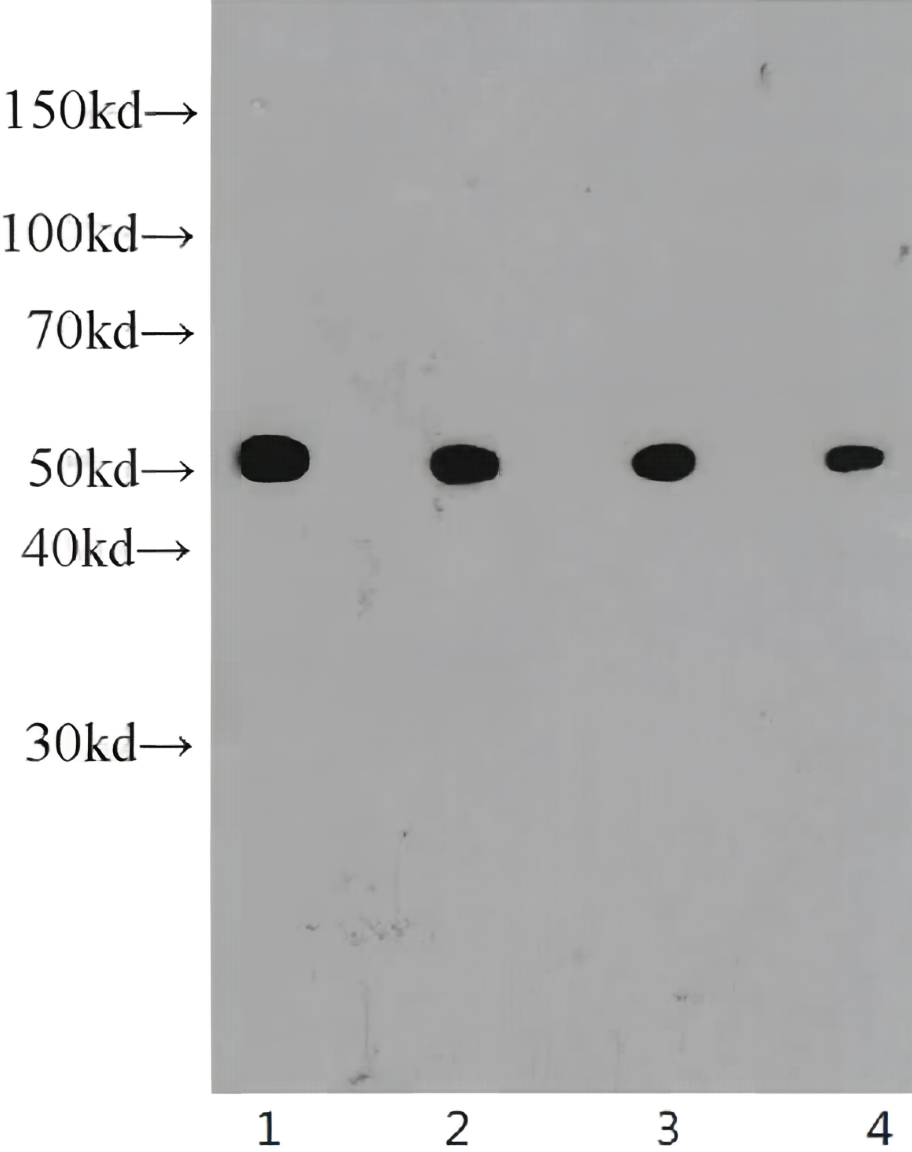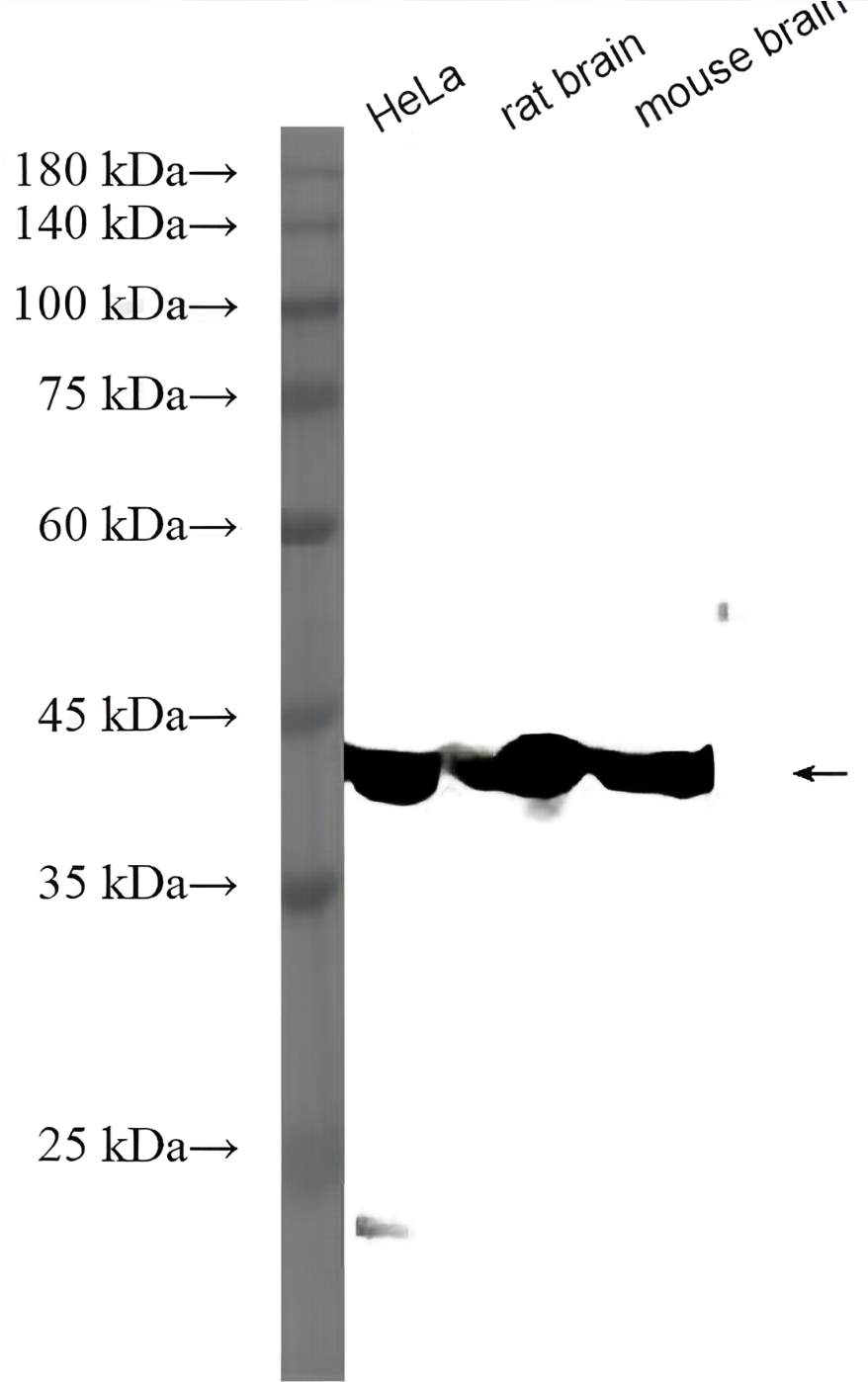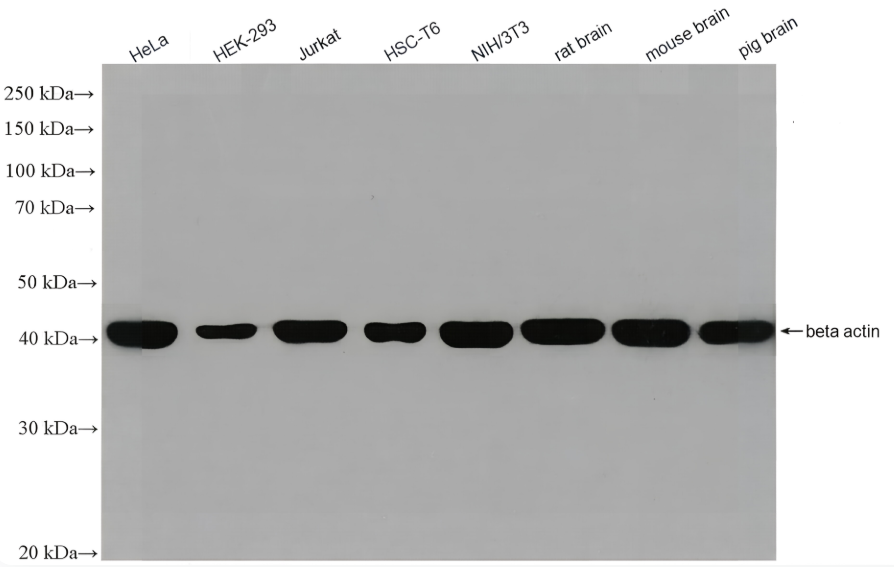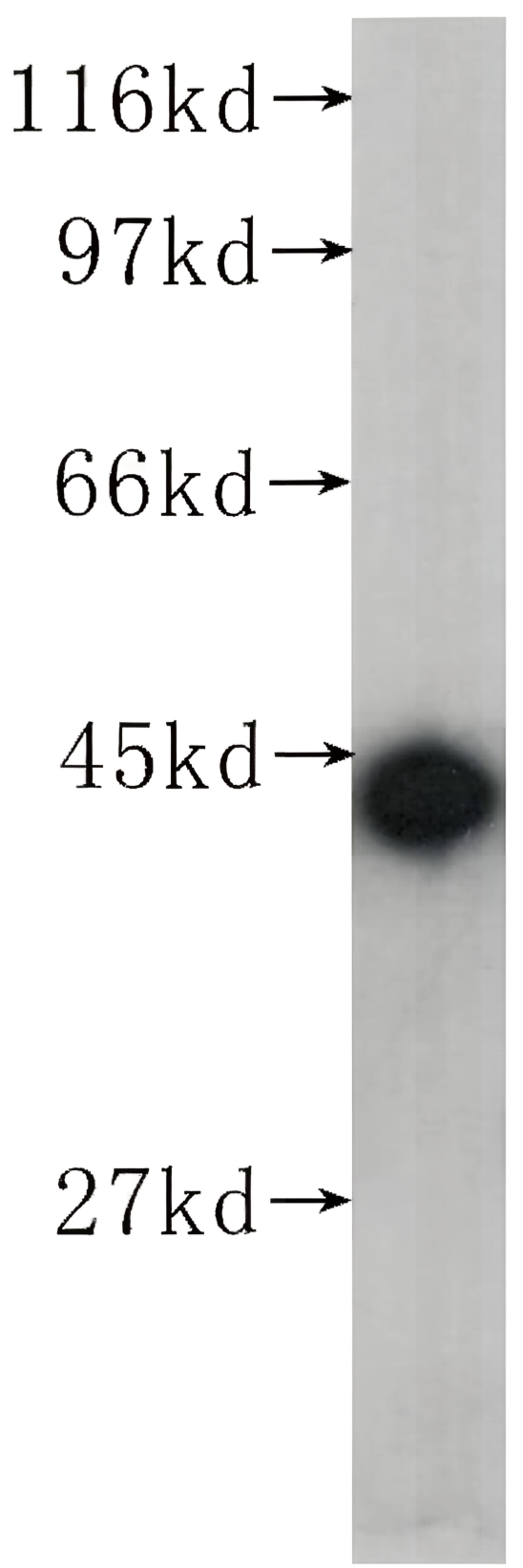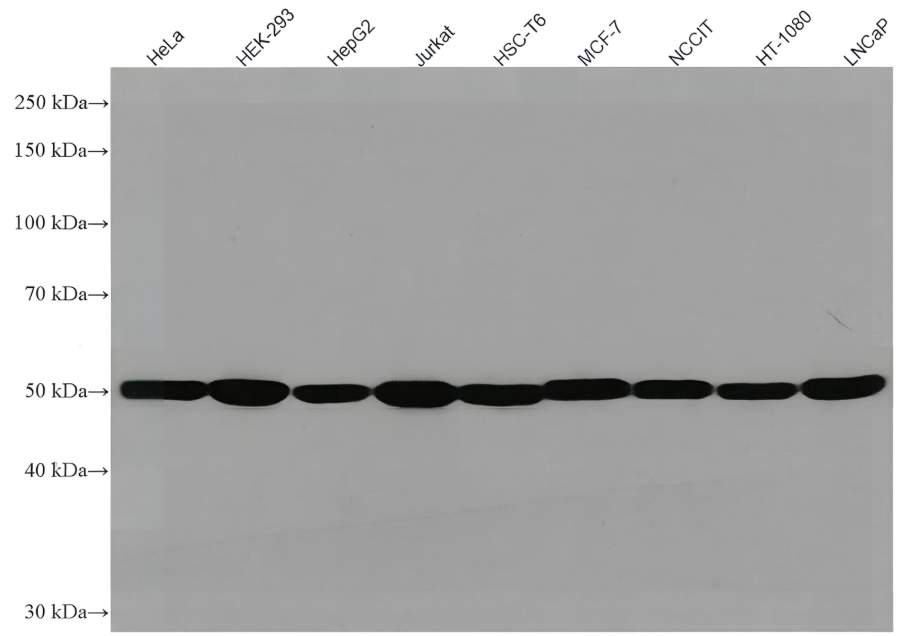CD30 Rabbit Monoclonal Antibody(ARB902)
CAT.NO. : ARB6694
RMB Please choose
RMB Please choose
Size:
Trail, Bulk size or Custom requests Please contact us
*产品价格可能会有所调整,请以品牌方官网实时更新的价格为准,以确保准确性。
Background
CD30, TNF-receptor superfamily member, is a receptor for TNFSF8/CD30L. TRAF2 and TRAF5 can interact with this receptor and mediate the signal transduction that leads to the activation of NF-kappaB. This receptor is a positive regulator of apoptosis, and it also has been shown to limit the proliferative potential of autoreactive CD8 effector T cells and protect the body against autoimmunity.CD30 is expressed in mononuclear Hodgkin’s and multinucleated Reed-Sternberg cells in Hodgkin’s disease, in tumor cells of a majority of anaplastic large cell lymphomas, in a varying proportion of activated T and B cells. In non-lymphoid malignancies, CD30 reactivity has been reported in embryonal carcinomas (ECs), seminomas, and hepatocellular carcinomas.This antibody has been useful in identifying Hodgkin's lymphoma, anaplastic large cell lymphomas (ALCL) and primary cutaneous CD30+ T-cell lymphoproliferative disorders.
Overview
| Target | CD30 |
| Host Species | rabbit monoclonal antibody |
| Molecular Weight | 64 kDa |
| Purity | ProA affinity purified IgG |
| Species Cross-reactivity | Human |
| Form | Liquid |
| Applications | IHC-P |
| Swissprot ID | P28908 |
| Immunogen | Synthetic peptide corresponding to CD30 residues within aa495-C terminal of CD30 |
| Storage Buffer | PBS 59%, Sodium azide 0.01%, Glycerol 40%, BSA 0.05% |
| Storage Conditions | -25°C to -18°C |
| Dilutions | IHC-P: 1:100-1:200 |
| Subcellular Location | Membrane |
| Recommended Method | Heat induced epitope retrieval with Tris-EDTA buffer (pH 9.0), primary antibody incubate at RT (18°C-25°C) for 30 minutes |
data
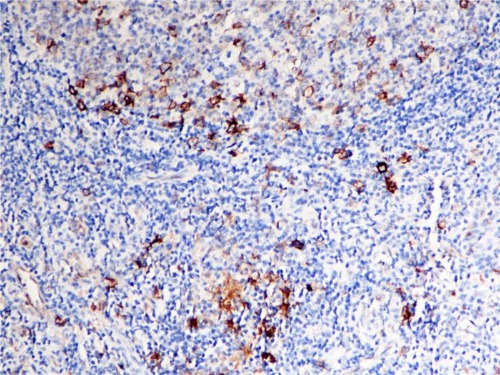
Immunohistochemical staining of human tonsil tissue sections using CD30 Rabbit Monoclonal Antibody (ARB902).
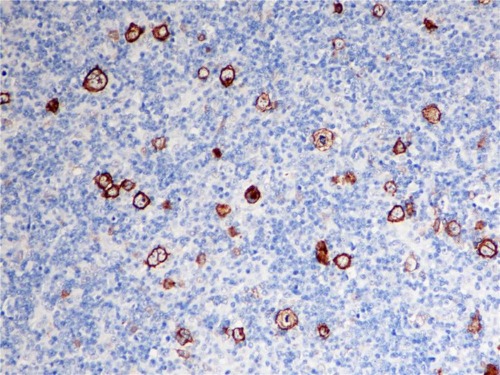
Immunohistochemical staining of human Hodgkin lymphoma tissue sections using CD30 Rabbit Monoclonal Antibody (ARB902).
Storage
Store at 4°C short term. For long term storage, store at -20°C, avoiding freeze/thaw cycles.
Research Use Only
For Research Use Only. Not for use in diagnostic procedures.
 New Products
New Products




